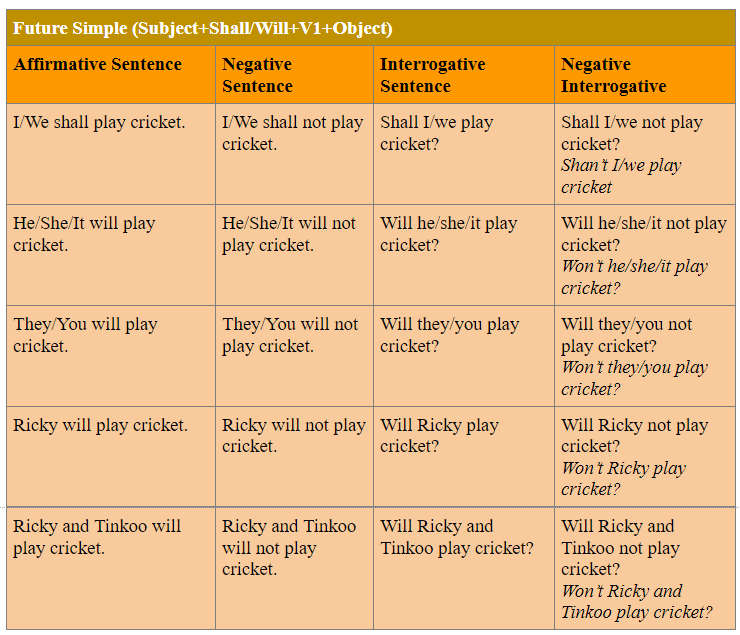Future Simple Tense in English Grammar:
The Future Simple Tense is also known as Simple Future or Future Indefinite Tense. It talks about the events that take place in the future.
Future Simple Tense Structure and Formula: (Rules)

Signal Words:
It is essential to focus on signal words because they help us identify the correct tense in a sentence. The signal words for the Future Simple Tense are:
in a year, tomorrow, in future, next week/month/Monday, If-Sentence Main Clause –
Type I (If you ask her, she will help you.)
use of shall or will
shall – is used for 1st persons (I, We)
will – is used for 2nd and 3rd persons (you, he, she, it and they)
Usage of the Future Simple Tense:
It is used:
To indicate an action that takes place in the future.
Examples:
- I shall meet him tomorrow.
- They will sell this car in a year.
To express the speaker’s opinions, hopes or assumptions about the future.
Here, we use the following Verbs or Adverbs to express these ideas.
(think, believe, expect, hope, suppose, be sure, perhaps, possibly, probably, surely. etc.)
Examples:
- They expect she will bring a beautiful gift to them.
- I am sure he will not help you this time.
- I hope the teacher will appreciate me.
- She will probably finish her work by next week.
To talk about promises, requests, refusals, offers. (we use will)
Examples:
- Will you help me with my homework?
- I won’t accept it.
- I will meet you tomorrow.
In the Main Clause – Probable Condition (Type – I)
Examples:
- If you go there, he will meet you.
- You will get this job if you attend the interview.
Note:
‘be + going to + V1: This phrase is used to express the likelihood of the action and decision or intention which has already been decided.
When we intended or decided to do something in the near future.
Examples:
- He is going to build a house. (intention)
- I am going to buy a car. ( intention)
- The government is going to release more funds to develop the city. (decision)
When we predict a future event with a clear indication or evidence.
Examples:
- See the dark clouds, it is going to rain. (likelihood)
- He prepared well, he is going to get a good rank. (likelihood)


Comments are closed.